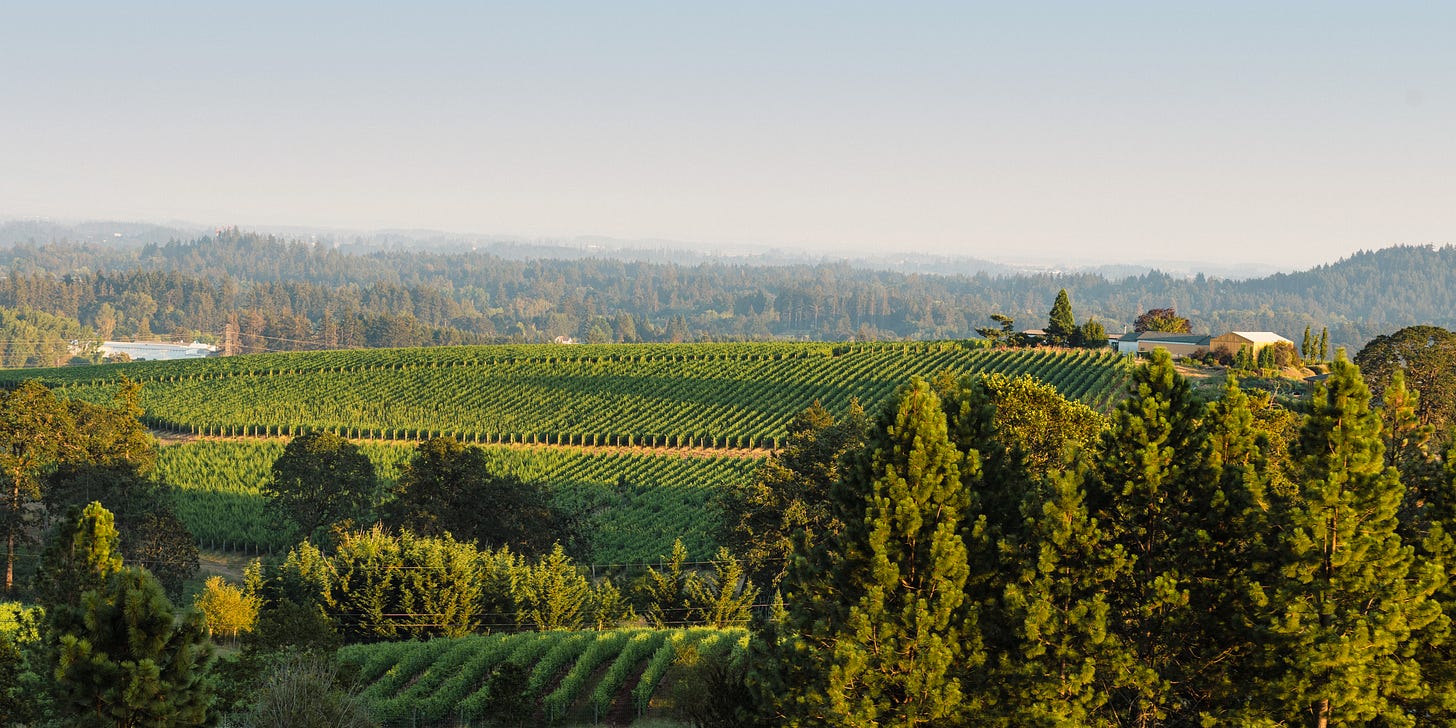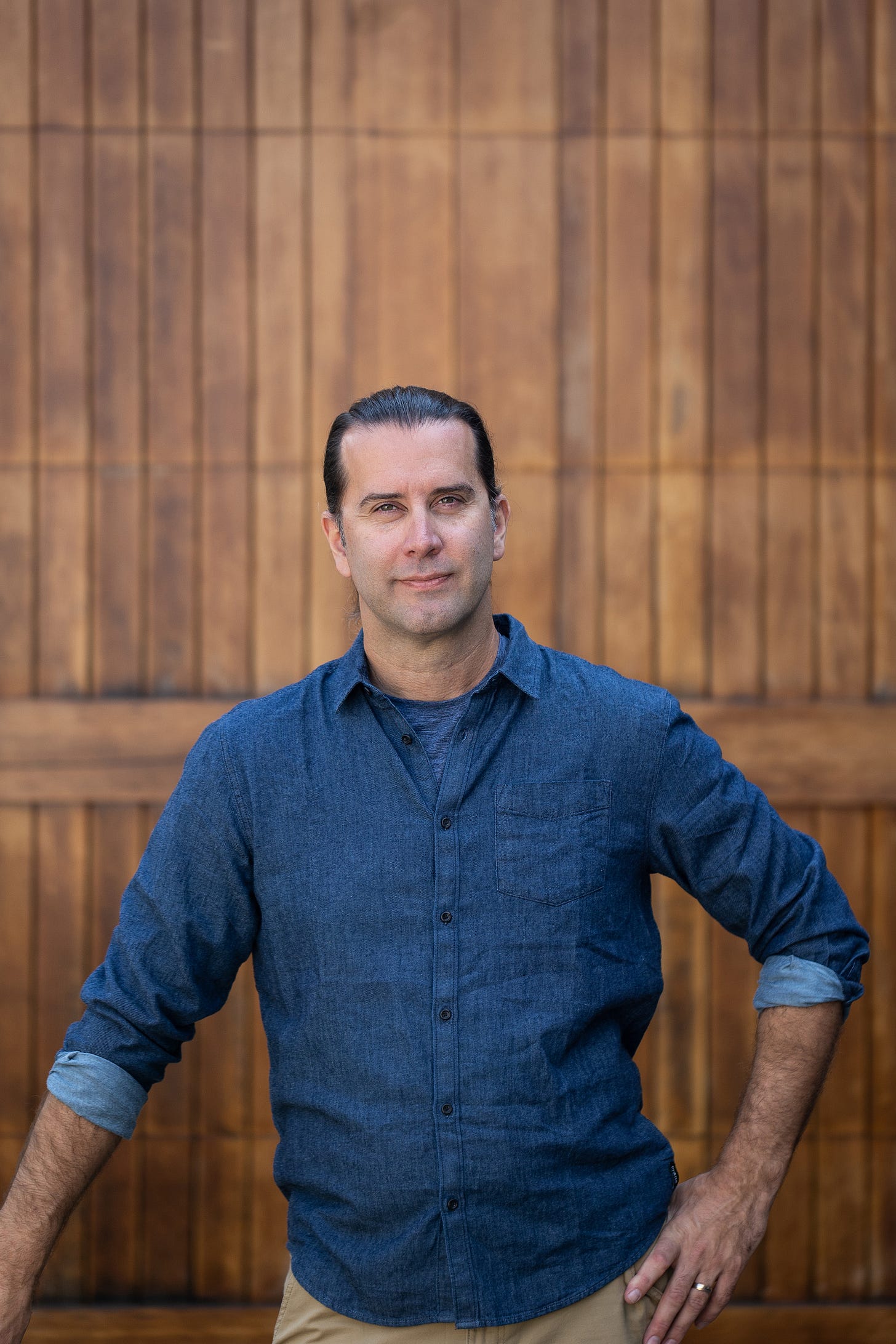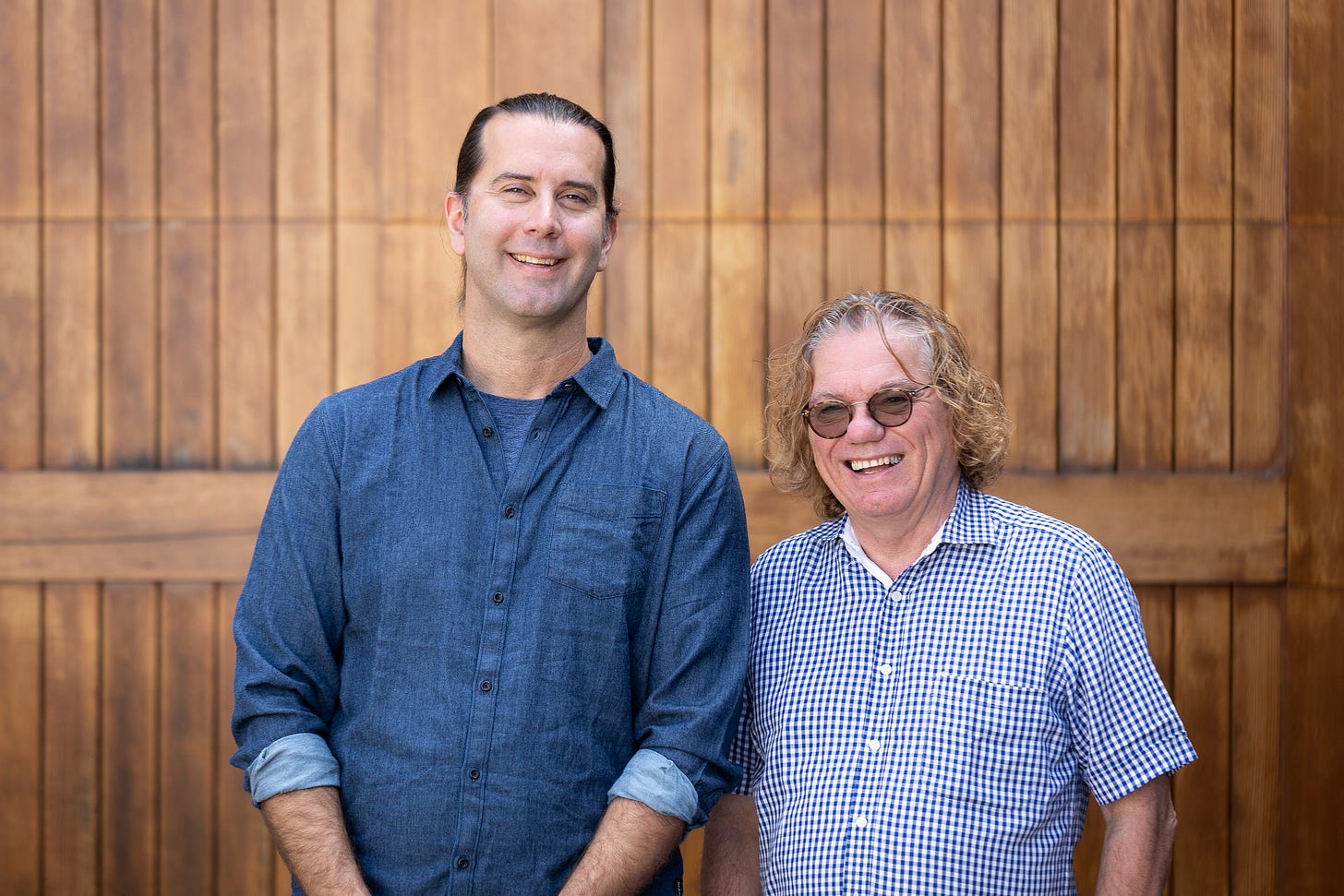Jamming With Tim Malone at Appasionata
Oregon winemaker made music, made beer and now makes amazing wine.
Tim Malone found the perfect match at Appassionata.
The Oregon winemaker studied at Berklee College of Music where he played a fretless bass guitar. Which allowed him to play notes based on feel, fitting for a winemaker that eschews conventions in the cellar. Reduction, the act of not exposing the wine to enough oxygen in the cellar, plays a distinct role in Malone’s wines.
At Berklee Malone wrote a blues tune in 6/8 time that fellow classmate, and future rock star John Mayer loved because it “allowed him to solo freely over it.” As a winemaker, Malone’s wines at Appassionata stand alone in their uniqueness and age. The project, founded by German winemaker Erni Loosen is also unique because it doesn’t appeal to the accountants.
Appassionata can hold back the release of its wines for as long as ten years. They’re released when they are deemed ready and the results are fully fleshed out wines ready to be enjoyed and savored.
“Never erase someone’s uniqueness ,” Malone said. “A savant is someone with so much greatness. There’s a lot of mundane stuff out there in wine and musically, too. Great grapes will rise to the top. My goal is to recognize that and try to avoid ‘cellar palate.’”
Because he got his start brewing beer, Malone knows how a palate can get worn out by the monotony of making the same product every year.
“I started in the beer industry and honestly, I got bored,” Malone said. “In the late 90s, the goal was just to make a consistent product. I made the same six beers year-after-year. Maybe there’s a little variation now. But, there’s something different every year with wine. Everyone asks, ‘what’s the best vintage?’ I think they are missing the point, the vintage variation is what should be celebrated.”
Just like his work with the fretless bass guitar, Malone wants to get a feel for a vintage without being burdened by technical numbers. He finds comfort being at a winery without a huge chemistry budget.
There are wineries that harvest grapes purely on the sugar and acid levels. He’s not after a formula, it’s not a recipe that a ketchup or a cola maker follows, that he’s chased in the cellar. It’s about inspiration, uniqueness and a wine that will reflect the vintage and stand the test of time.
“Plenty of wineries go simply off the numbers,” Malone said. “I’m probably right down the middle but lean more sensory. It’s the same thing with music, I play fretless and sometimes the guitar gets out of tune and I have to play on muscle memory.
“The way I approach everything is musically. It’s why I don’t do it professionally (music), I think I burnt myself out on it because I went so deep and killed the creative inspiration of it. Took that lesson to wine; everytime near the precipice I step back, enjoy it and not be too analytical.”
The Appasionate Estate, “Adante” Pinot Noir 2017 ($135) had a briny note at first with flavors of olive tapenade. There was a beautiful blue and red fruit combination which seamlessly met an array of spice-rack flavors. There were well integrated tannins with a little soy sauce flavor and note on the nose to go along with roasted mushrooms. Its mouthfeel is round yet fleshy and so unique it sends the wine-analyzing region of your brain to places it hasn’t been.
In the Appasionate Chardonnay 2019 ($75) there was a pronounced salinity that combined with lemon-rind flavors. Over time, Malone said the reduction will add a faux-minerality to the flavor profile and a stone-like flavor will emerge.
When it comes to guessing how a wine will develop several years down the road, the musician in Malone comes out. There’s no time in a concert, a performance or a jam with John Mayer to analyze which note comes next. There’s just time to hit it, embrace the art and move onto the next note.
“Go with your first instinct,” Malone said. “It’s not overly clinical. I haven’t sat there and let my brain get in the way. I always worry about acclimating to something too much.I’m only happy with a handful of the wines I’ve ever made. I hope to never settle on being content.”
The artist as his own harshest critic.







